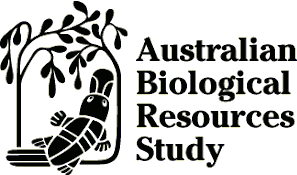Australian Tropical Rainforest Plants - Online edition
Cissus antarctica Vent.
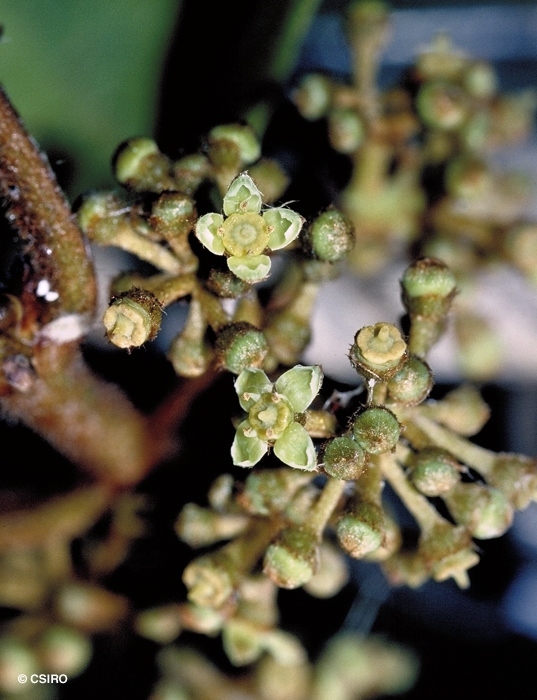
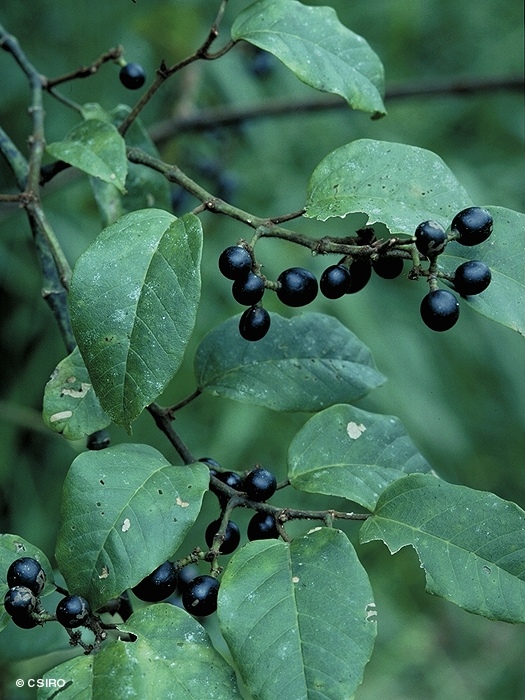
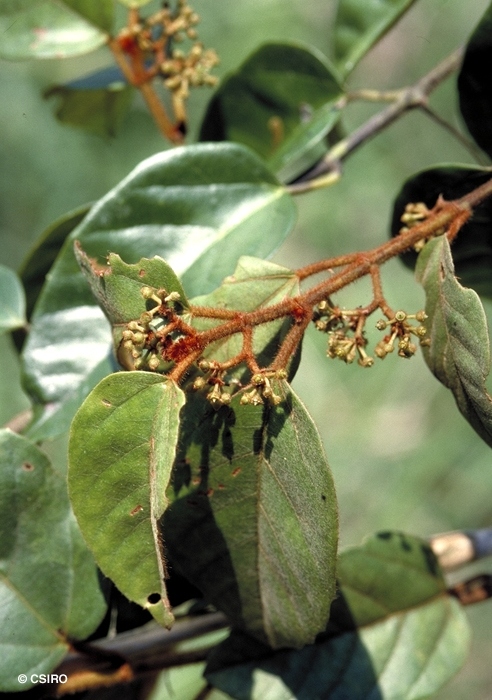
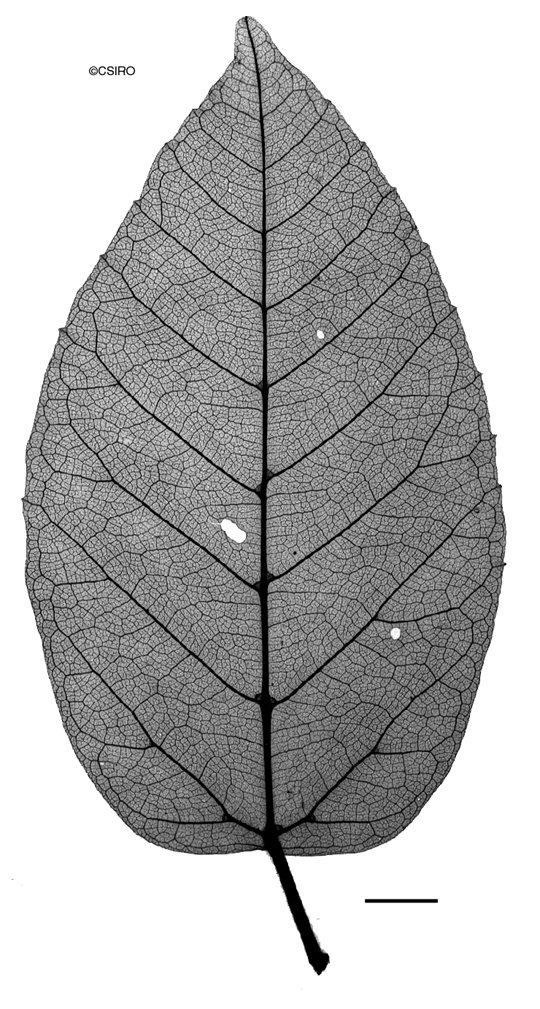
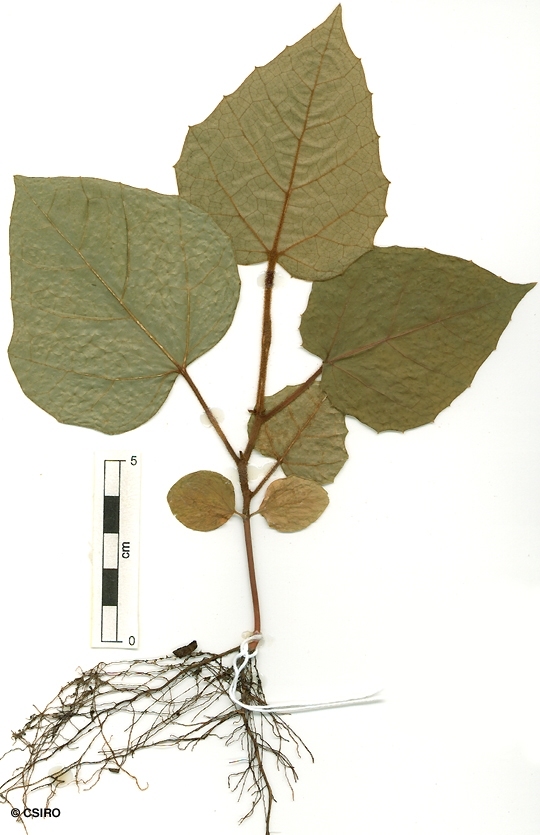
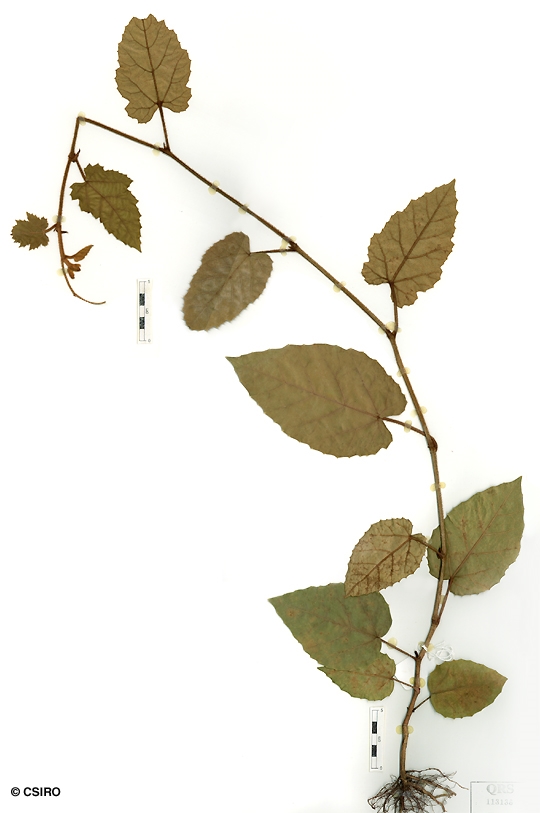
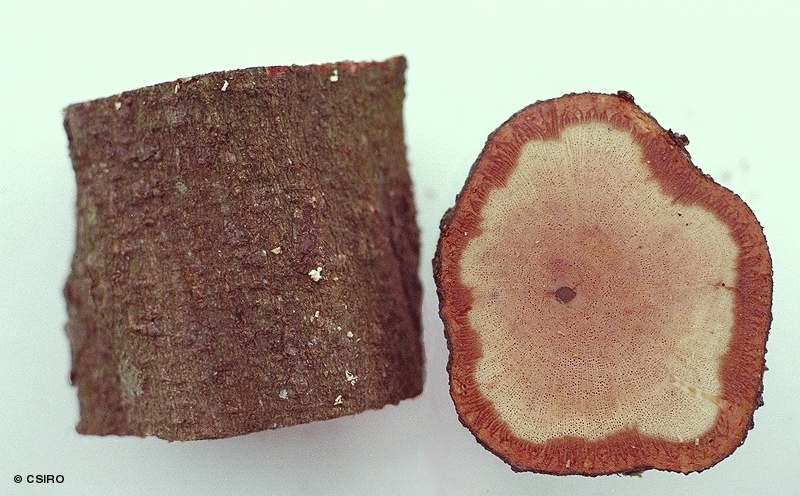
Ventenat, E.P. (1803) Choix de Plantes : 21. Type: Arbrisseau sarmenteux, originaire de la Nouvelle Hollande, cult. P depuis plusieurs annees chez M. Cels. Il passe lhiver dans lorangerie, etc.
Kangaroo Vine; Water Vine; Vine, Water; Vine, Kangaroo
Vine stem diameters to 8 cm recorded. Vascular rays +/- uniform in thickness except for an occasional one which is twice as wide as the rest.
Stipules caducous, about 2-3 mm long, densely clothed in long brown hairs. Leaf blades about 5-13 x 3.5-8.5 cm, petioles about 1-2.5 cm long. Marginal teeth usually large. Twigs, petioles and the underside of the leaf blades densely clothed in rusty or reddish brown hairs. Leaf hairs two-branched or medifixed, one branch often much longer than the other. Domatia (foveoles) +/- globular, the opening small and difficult to discern. 'Oil dots' elongated, visible with a lens. Tendrils hairy, usually two-branched at the apex, leaf-opposed. Oak grain in the twigs.
Cotyledons broadly ovate-cordate to almost orbicular, about 20-25 x 18-19 mm with 3-5 veins radiating from the base. Petioles about 3 mm long. First pair of true leaves with toothed margins, 4-6 teeth on each side. Stipules about 1 mm long. Stem and young leaves hairy. At the tenth leaf stage: all seedling parts hairy. Leaf blade cordate-ovate, apex acuminate, base cordate, about 11-12 x 7 cm, petiole about 4.5 cm long, margins toothed with 15-20 teeth on each side. Upper surface of the leaf blade clothed in brown medifixed hairs with arms of unequal length. Underside of the leaf blade clothed in brown simple hairs. Midrib raised on the upper surface. Stipules about 10 mm long, densely clothed in rusty brown hairs. Stipules enclosing the terminal bud. 'Oil dots' elongated. Seed germination time 91 to 150 days.
Fruits eaten by many bird species.
Often grown as an indoor plant. Commonly cultivated over a trellis or fence in gardens and as a potted plant for indoors.




